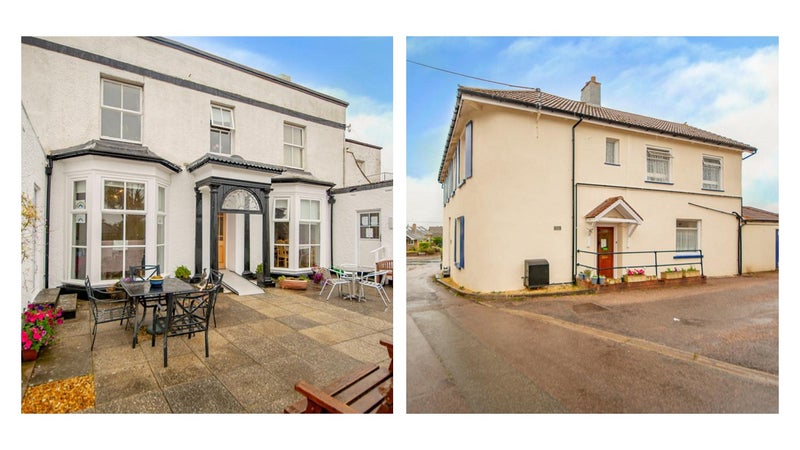Thinking of selling your pharmacy? Here is what you need to know from start to finish
In this blog, Jack Chard, Director in the Medical team at Christie & Co, shares the key things you need to consider before you start the selling process and what to do from there…

Deciding to sell your pharmacy can be a little daunting, however, as is often the case, preparation is key and the more you know and can prepare beforehand, the easier and smoother the process will be.
Source your legal, brokerage, and financial advice
When instructing a solicitor, selling agent, and accountant, it is vital that they are pharmacy specialists and therefore understand the nuances and complexities of the sector.
The due diligence processes are time-consuming and reliant on full cooperation from all parties who will work together to ensure everything runs as smoothly as possible. Using experienced intermediaries who understand both the legal and regulatory processes will only strengthen this.
Is it going to be an asset sale or a share sale?
The advice you have received over the course of your ownership may have determined whether you operate your business as a sole trader or under a company structure. The sale process will vary slightly depending on which category your pharmacy falls under.
You can sell your pharmacy as a share sale or as an asset sale. The main difference between the two is that, in a share sale, the buyer is purchasing the entire business, which will include all assets, historical liabilities and obligations. For an asset sale, the buyer purchases only the assets and goodwill of the business without historic liabilities.
Your accountant will be able to advise which one is most tax efficient for you.
With both types of sale, your broker will be there to monitor the process, following up with the numerous parties involved, from the solicitors, accountants, valuers, and bankers. This constant communication is vital to ensure the smooth progress of the sale.
Do you plan to complete a lease assignment or a new lease?
If you are assigning a lease, you will need to introduce the buyers to your landlord via the solicitors, as it may be that they will also need to extend the lease for the purposes of their bank funding. If you are the landlord, then your solicitor will draw up a new lease for the purchaser.
TUPE - Transfer of Undertakings (Protection of Employment) Regulations
TUPE provides various protections for your staff, which a buyer is expected to recognise and accept on behalf of all contracted staff who are transferring on sale. This is a complicated area of law and one that you should take appropriate legal advice on from the outset. If you have family members who will be leaving the business, it is important that this is made clear when the pharmacy is brought to market.
Why not sell privately?
Pharmacy businesses are extremely sought-after, therefore, in many cases, people who privately sell might save themselves on fees but will agree on a price that is vastly under market value and therefore be agreeing to a net loss to what they could achieve.
Many private buyers will threaten to withdraw their interest should you market the pharmacy openly, however, an informed owner will be able to deduce that this reasoning is in the buyer’s favour, to avoid the competitive tension that an on-market process would inevitably generate.
The simple metrics are that, privately, you will only likely speak to a handful of owners and/or locums about selling your pharmacy, many of whom will simply not be looking to acquire pharmacies or not have the funds to do so. In comparison, your broker will have a vast database of applicants to whom they can speak. By fully marketing your business, you can be assured to gain the best price, giving yourself comfort that you did not undersell your pharmacy.
Will putting my pharmacy under management impact its value?
Many owners no longer want to work full-time so consider putting their pharmacy under management rather than selling. Whilst this may make sense in the short-term, owners should consider the long-term impact this has on the value of a pharmacy.
Positives include the fact that you get to retain ownership of your pharmacy and that you should still receive profits, even if they are at a lower rate.
Negatives, however, include the fact that you will most likely remain as the Superintendent Pharmacist and therefore, will still hold much of the responsibility. In addition, your pharmacy sale price will most likely decrease as owner-operator pharmacies tend to be run more efficiently, leading to stronger net profits. As such, if you run your pharmacy under management for a few years, when you come to sell, the price won’t be based on what you once achieved under your ownership, but will be based on its level of profit whilst under management.
Once you’re set on the type of sale you want to embark on, you will need to…
Gather information
Set some time aside to collect the relevant data that will be needed for your pharmacy appraisal, which will primarily include your accounts, NHSBSA PPD statements, an anonymised staff list, and a copy of the lease. This will not only help hugely with creating a smooth process but will also aide the broker with his/her marketing and asking price recommendations, so the more information you can share with your advisers from the start, the better.
You will need a business appraisal
Conducted by your agent, a business appraisal will consist of an analysis of your business and an asking price recommendation, as well as advice on how you can improve the value of your pharmacy should you choose not to sell right away.
If you own the freehold, you will get advice on setting up a new lease and a suggested starting rent.
Agree marketing details
Based on the confidential status of the sale, your pharmacy will be appropriately marketed.
There are many reasons why you may wish to sell confidentially but, if this is something you are undecided about it may be useful to know that, on average, businesses sold non-confidentially through Christie & Co typically receive a 73% increase in viewings and a 46% increase in offers, compared with confidential sales.
Qualify buyers and arrange viewings
Viewings of your pharmacy will be arranged via your business agent. If you would like to keep the sale confidential from your staff, this can be done discreetly and outside of working hours.
We will check potential buyers’ financial situation and introduce them to our associate company, Christie Finance, to clarify their funding ability to acquire your pharmacy. This ensures that ‘time wasters’ are removed from the viewing process.
Invite offers
All parties will be invited to submit an offer, which you and your agent will then analyse and discuss to ensure that you are happy with the type of buyer and the price they are willing to pay.
Heads of Terms/Memorandum of Sale
Once a sale is agreed in principle and, subject to the contract, your agent will circulate Heads of Terms or a Memorandum of Sale which will encapsulate all the key sale details agreed to date.
The agent’s role does not stop once the Memorandum of Sale has been circulated - an experienced agent will maintain regular contact with all parties, to assist in a timely conclusion of both the legal and regulatory aspects of the sale.
Complete
On the day of completion, both you and the buyer(s) will be present to witness the stocktake, for which the cost is usually split. Depending on the sale type, this may also be the first time you will introduce the purchaser to the staff. It is also common for you, as the seller, to help the buyer with any finer points of the business which will help them continue the success of the pharmacy and continuity of patient care.
Christie & Co has been selling pharmacies for over a decade and, during this time, has become the UK’s leading pharmacy broker, delivering quality, professional, and timely advice. For a confidential discussion about your business options, contact Jack Chard: jack.chard@christie.com / 07590 486 349.



















